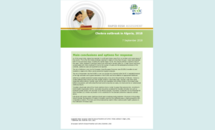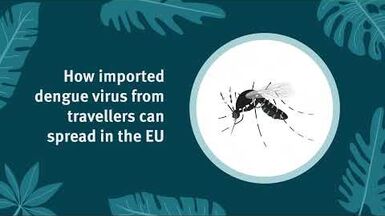Rapid risk assessment: Cholera outbreak in Algeria, 2018
This document, in the context of the recent outbreak of cholera in Algeria, assesses the risk of infection for EU/EEA residents in Algeria and EU/EEA travellers to Algeria and the risk of cholera importation and spread within the EU/EEA.
Executive Summary
As of 30 August 2018, Algeria has reported 74 confirmed cholera cases from six northern and coastal areas of the country. This is the first cholera outbreak reported in Algeria in more than 20 years. Cases were reported both in rural and urban areas, including the capital Algiers. So far, the wilayah of Blida is reporting most of the cases. Vibrio cholerae O1 serotype Ogawa was confirmed in several cases. A water source was found contaminated with Vibrio cholerae. Due to the number of cases and the geographical extension of the outbreak, additional cases are expected to be reported.
The risk of infection is very low for European Union/European Economic Area (EU/EEA) travellers to and residents in Algeria who follow correct preventive hygiene measures. The risk of importation into the EU/EEA is very low and the risk of spread within the EU is negligible because of the high sanitation and hygiene standards in the EU/EEA and the availability of appropriate healthcare.
Adhering to suitable preventive hygiene measures plays a key role in the prevention of infection. Visitors to cholera-affected areas should only drink bottled, boiled or chlorinated water, regularly wash their hands (especially before eating), carefully wash all fruits and vegetables with bottled, boiled or chlorinated water before consumption, eat well-cooked food and avoid consuming ice cubes, ice cream and raw or undercooked seafood products.
Travellers should seek advice from travel medicine clinics in order to assess their personal risk. According to World Health Organization (WHO), vaccination should be considered for travellers at higher risk such as emergency/relief workers who are likely to be directly exposed. Vaccination is generally not recommended for other travellers. Cholera vaccination is not a substitute for the standard preventive measures outlined above.
Individuals with severe watery diarrhoea should seek immediate medical attention. Physicians in the EU/EEA should consider the diagnosis of cholera in travellers returning from affected areas in Algeria presenting with compatible symptoms. Physicians and clinical laboratories need to follow national public health guidance on the notification of cholera cases.
Download





